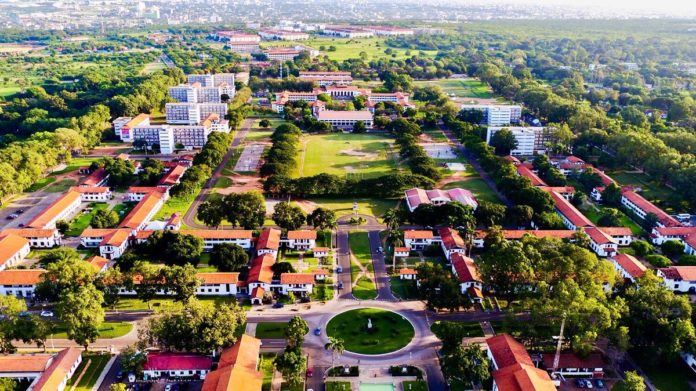|
Getting your Trinity Audio player ready...
|
Mr. Muctar M. Abbas, Exec. Head of Legal Service and Company Secretary of Bank of Africa Ghana (BOA), has told Ghanaians in the diaspora who intend to invest in the country that Ghana has elaborate laws to assist their operations in the local economy.
Mr. Abbas also pointed out that Ghana has specialized institutions that are ready to assist them right from the business registration stage to when trading actually commences.
To that end, he said, the investors must clear all doubts in their minds with respect to whether or not Ghana is an ideal place to invest, and go ahead to inject their capital into the oil-producing West African country.
He spoke at a webinar for over 500 Ghanaians in the diaspora under the theme: “Ghana, An Ideal Destination for Diaspora Investors”. The event was organized by Bank of Africa to attract Ghanaian and other foreign nationals investors in the diaspora to invest in the Ghanaian economy. This is the second of a 3-part webinar series scheduled to offer the needed information that will assist diasporans in investing in Ghana.
“Mr. Abbas emphasized that the relevant state institutions are first and foremost, enablers of investments and business operations in their respective sectors”. He added with the introduction of technology and the digitalization of our process, “many of the institutions are also employing technology to expedite transactions and lessen the burden of businesses in their dealings with them.
Explaining the registration requirements in Ghana, Mr. Abbas told the gathering that the law requires of them to provide particulars of the company; name, object, address, telephone number, and email address, as well as particulars of shareholders/subscribers: name /Date of Birth, Profession/Tax Identification Number/Address.
“They are also to provide the particulars of the beneficial owners, the particulars of at least 2 directors, Directors statutory declarations, particulars of external auditors, particulars of company secretary, company’s constitution /regulations. Amount of stated capital and number of shares (ltd).
“Some of the statutory registration requirements of businesses in Ghana include registration with Ghana Investment Promotion Centre, (GIPC), the Ghana Revenue Authority (GRA) Social Security and National Insurance Trust (SSNIT) National Pensions Regulatory Authority (NPRA), Local Authority business,” he said.
Also speaking at the webinar was Caliis Nii Oman Badoo (Esq), he took the participants through the structure and regulatory environment of Ghana’s financial sector including the frameworks for affecting investment, Banking and Non-Banking transactions, securities and capital sector, new developments in West Africa, etc.
He educated the audience on some amended Acts and some new Acts which have been passed to help streamline activities. Amongst them are Banks and Specialized Deposit-taking Institutions Act, 2016 (Act 930), Non-Bank Financial Institutions Act, 2008 (Act 774), Securities Industry Act, 2016 (Act 929), Alternative Dispute Resolution Act, 2010 (Act 798), Companies Act, 2020 (Act 992), Corporate Insolvency and Restructuring Act, 2020 (Act 1015), etc.
Under the Capital market, he explained that Ghana Alternative Exchange is there to assist small and medium-scale start-ups, the rules under this flexible with a stated capital of GHS250, 000. He again told them of access to support funds for the cost of raising capital, they are also qualified for fees waivers he said.
The Ghana Commodity Exchange is structured to promote Public Private Partnership with the aim of establishing a linkage between the agric sector and commodity producers and buyers, he said. Caliis again said that this will ensure competitive pricing for agricultural products as well as guarantee the quality of produce.
Touching on new developments in West Africa Market, he spoke of the West Africa Capital Integration Council (WACMIC). This institution was established to bring together stock exchange markets in the sub-region and also create more options for brokers, investment bankers, fund managers, etc.
He continued by saying that the West Africa Securities Regulatory Association (WASRA) as constituted consists of Capital Market regulators in the West African sub-region. He said the association aims at fostering market integration within the region. It again offers a common platform to allow capital to be raised across borders within the region with the same benchmarks.
Interestingly, there is the Alternative Dispute Resolution Act, 2010 that allows arbitration awards from countries that are not signatories to the United Nations Convention on the Recognition and Enforcement of Foreign Arbitral Awards. This presents some relief on all disagreement and court judgement that may arise in the course of business their business transactions.
Source: Daily Mail GH





